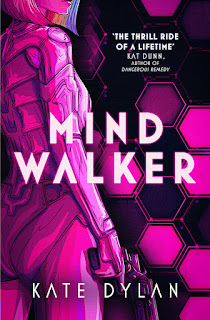 Exciting news!!! For all of you who have been waiting waiting waiting for the audiobook of ROGUE FAMILIAR, it is liiiivvveeee! Just on Audible for the next 3 months, then it will be wide. If you'd like to review, I do have some free downloads available. Comment here or email Assistant Carien via the website contact form.
Exciting news!!! For all of you who have been waiting waiting waiting for the audiobook of ROGUE FAMILIAR, it is liiiivvveeee! Just on Audible for the next 3 months, then it will be wide. If you'd like to review, I do have some free downloads available. Comment here or email Assistant Carien via the website contact form. 
Amusingly enough, our topic at the SFF Seven this week is self-care and burnout. I say amusing because this has been a topic of discussion in Jeffe's Closet, my Patreon and Discord, these last couple of weeks. One thing I love about that space is that people can ask me questions and it gives me the opportunity to mull answers I hadn't previously given thought to.
One gal asked me about advice on getting through when you're faced with deadlines and your well is empty. I talked about this on Monday's podcast, too, but I'm going to reiterate here because I think our group mind hit on something really important.
We often think of refilling the creative well as something lovely, peaceful, and largely passive. Self-care often carries the sense of similar calm. We think of leisurely strolls, hot bubble baths, a glass of wine, gazing at the sunset with friends, lingering over moving art at museums and galleries. All of these things are lovely... And not terribly useful when you're facing deadlines, dealing with crises, and you're already short on time with a well so empty you've got nothing left to put out the fires, much less create something to meet those deadlines with.
So, what do we do then?
The thing is, burnout is something we must take very, very seriously. I've been there - and once you hit full burnout, the bottom of the well is dry as a bone, then it can takes months or years to recover. It's easy to put off our mental health, to decide that refilling the well can wait until this family member is doing better, or this deadline is met, or after some future date when we have time to deal with it. Except that mental health and burnout don't obey our schedules. Taking this approach is like deciding that an infection can wait until we've finished some other projects - by the time we're ready to deal with it, we could have blood poisoning or lose a limb.
What's the answer then? This was my advice to her: cut out everything that is not actually on fire and aggressively fill the well.
I was concerned that this was too vague, but it worked for her! Sometimes we need permission to ignore everything that is not a crisis - to ask ourselves "is it on fire?" and set it aside if not. As for aggressively filling the well - an image that seemed to amuse everyone - I can't tell you how to do that. We all have to find what refills our own wells. But as for going about it aggressively, that is the key. That means you're prioritizing those activities, going after them with gusto, rather than waiting for the water to seep in. Muster your army of brooms and aggressively fill that well!













.jpg)





.jpg)